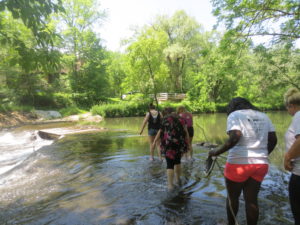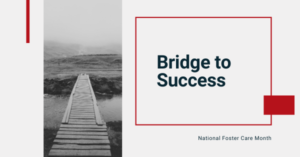
Bridge to Success
May marks National Foster Care month, prompting an annual focus on a system response that impacts nearly half a million children and youth in the U.S. at any given time. During a normal year, advocates and policymakers highlight promising trends, practices, and challenges for supporting foster care youth, including those transitioning out of the system. However, with a global pandemic in the backdrop, the plight for many is magnified, and the time for immediate reform is now. For over 20 years, Shared Hope has been committed to protecting all children and youth from being commercially sexually exploited. To do this, in the midst of the pandemic, requires a heightened need to focus on the most vulnerable among us.
The intersection of sex trafficking victimization and foster care involvement has been widely recognized. We know from anecdotal accounts, survivor voice, and the limited data available that youth survivors of sex trafficking are disproportionately more likely to have experienced at least one foster care placement prior to their trafficking victimization. The trauma, caused by both the experience driving foster care placement and the removal/placement itself, magnifies the vulnerabilities that are inherently present during adolescence. This compounded trauma, which is likely present for all—425,000—youth in foster care, makes the need for thoughtful, age-appropriate, and holistic support for those transitioning out especially dire.
The impact of removal and foster care placement can create vulnerabilities that do not expire upon the child’s 18th birthday. In fact, such vulnerabilities can be intensified as the child is confronted with new expectations and decreased support systems. Navigating this bridge between adolescence and adulthood is daunting for any child but can be crushing when the child is forced to build their own bridge and cross over it alone. This is the plight that youth transitioning out of foster care experience. As a result, such youth are disproportionately more likely to experience housing insecurity, homelessness, exploitation, and substance use, as well as trafficking and commercial sexual exploitation. Unsurprisingly, this creates a revolving door effect: when discharged into the world with no support, resources, or safety net, transition age youth are forced to make choices out of survival, often leading to criminal justice involvement; those involved in the criminal justice system are more likely to experience having their own children removed and placed in foster care, and the cycle repeats itself. We know from our own work focusing on ending the criminalization of sex trafficking victims that this is often the experience and fate of survivors. We can stop this cycle of abuse-poverty-punishment. We can provide youth with both the support needed to transition into adulthood and access to opportunities that promote health, wellness, and stability. We can build bridges to success.
To promote critical transition age care, Congress passed the Federal Fostering Connections to Success and Increasing Adoptions Act of 2008, allowing state child welfare agencies to utilize federal funding to extend services and care to youth under 21. Subsequent legislation that passed in 2015, The Justice for Victims of Trafficking Act, amended the Child Abuse Prevention and Treatment Act (CAPTA) to permit states to use CAPTA funding to provide extended child welfare services to youth under 24 years of age, recognizing the imperative need for a continuum of care, support, and services during an especially vulnerable period of life. Over the last decade, 45 states have extended foster care systems to include some youth under 21; however, a number of those states have created eligibility conditions that make accessing extended services and care a challenge for many older youth. The barriers to care have manifested in countless stories of youth being discharged into poverty, homelessness, sex trafficking victimization, unemployment, and criminal justice involvement even before the COVID-19 pandemic; the consequences are even more dire now.
Recently, Foster Care Alumni and the National Center for Housing and Child Welfare (NCHCW) issued a joint letter to the National Governors Association, forecasting the serious challenges awaiting approximately 17,000 youth anticipated to transition out of foster care this year. The letter referred to discharging these youth now, in the midst of the pandemic, as “unconscionable and inhumane” as many may face isolation, homelessness, unemployment, and food insecurity at unprecedented levels. Though the letter paints a grim and unsettling picture, it also serves as our call to action.
Shared Hope has long demanded a reformed child welfare response specific to sex trafficked children, but the realities and experiences of youth transitioning out of child welfare’s care demand that we push further to mitigate the vulnerabilities and end cycles of exploitation and abuse. We must develop and provide the infrastructure, resources, and support necessary to ensure the youth’s journey from adolescence to adulthood is not one of survival but, instead, one that promotes the long-term health, safety, and success of the young person. No child or youth in the U.S. should be pre-destined for exploitation, homelessness, poverty, or prison. Yet, many state policies currently provide a one-way ticket to an adulthood riddled with volatility, injustices, and abuse. The onus is on us, as adults and advocates, to reverse the course, engineer new plans, and build the bridges to success for all youth.
Resources:
Child Trends, “Supporting Young People Transitioning from Foster Care: Findings from a National Survey”
Chronicle of Social Change, “The Pandemic You Know, and The One You Don’t: Vulnerable Youth in The Crisis”
Kansas City Star, “Throwaway Kids”
Juvenile Law Center, National Extended Foster Care Review: 50-State Survey of Extended Foster Care Law and Police Executive Summary and Database
National Conference of State Legislatures, Older Youth in Foster Care State Profiles & Data Base
The Field Center, “Human Trafficking Prevalence and Child Welfare Risk Factors Among Homeless Youth: A Multi-Year Study”
Shared Hope, State Impact Memo on Preventing Sex Trafficking and Strengthening Families Act (PSTSFA) and Justice for Victims of Trafficking Act (JVTA)
Opportunities for Advocacy & Action:
Coming soon!
 By Marissa Gunther, Director of Growth Strategies, Shared Hope International
By Marissa Gunther, Director of Growth Strategies, Shared Hope International
 He quickly realizes that he can’t save all of the children alone. He needs more help.
He quickly realizes that he can’t save all of the children alone. He needs more help.
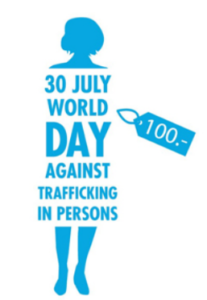 And so, we support the United Nation’s
And so, we support the United Nation’s 
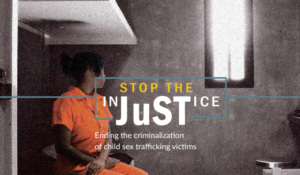 Astonishingly,
Astonishingly, 


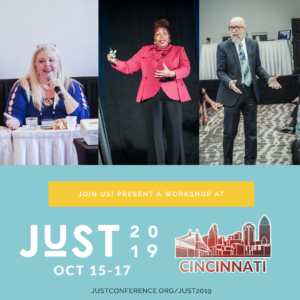 This year the 2019 JuST (Juvenile Sex Trafficking) Conference will be hosted October 15 – 17 Cincinnati, OH! In the center of Cincinnati, a few blocks from beautiful views of the Ohio river, we’ll gather anti-trafficking professionals, experts and advocates from around the country for 3 days of inspiring and empowering training.
This year the 2019 JuST (Juvenile Sex Trafficking) Conference will be hosted October 15 – 17 Cincinnati, OH! In the center of Cincinnati, a few blocks from beautiful views of the Ohio river, we’ll gather anti-trafficking professionals, experts and advocates from around the country for 3 days of inspiring and empowering training.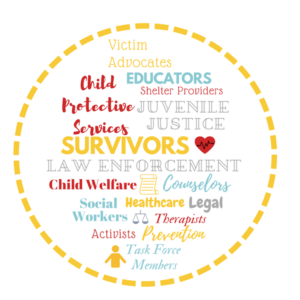 Who will be your audience?
Who will be your audience?